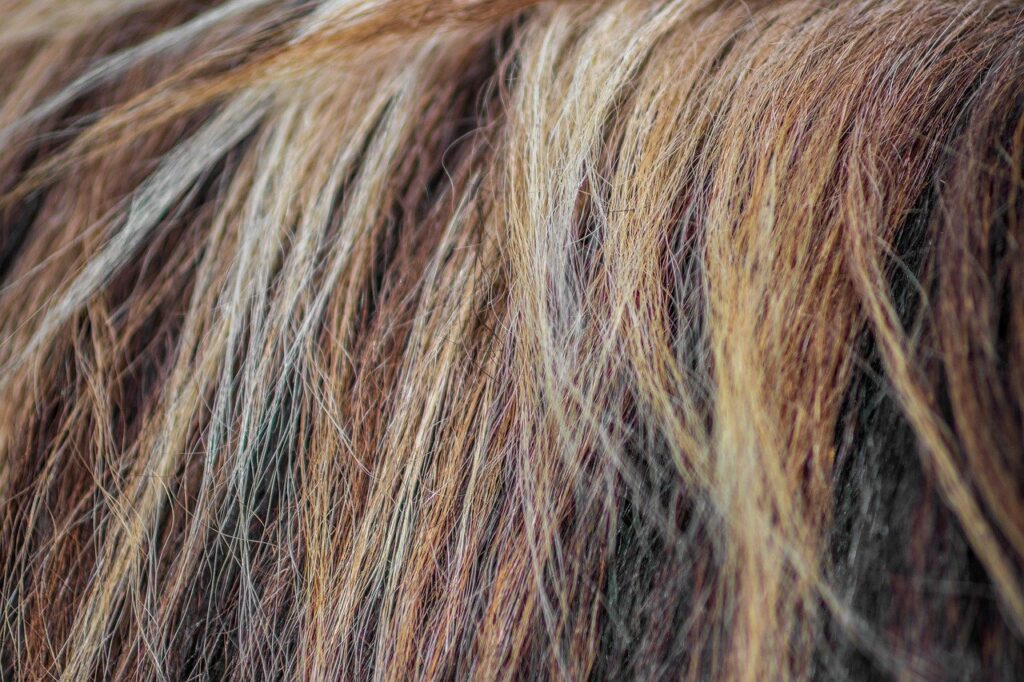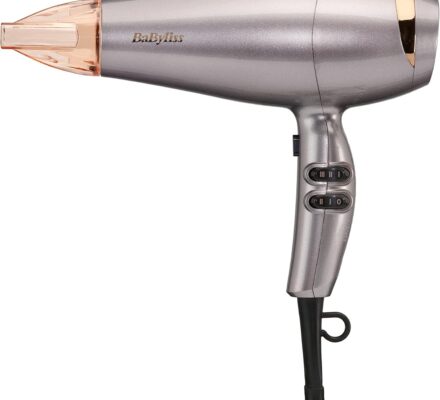In your quest for sleek, straight locks, it’s important to choose a straightener that not only delivers stylish results but also keeps your hair healthy. In “What Straightener Keeps Hair Healthy?”, you’ll discover the features and technologies that set certain straighteners apart, protecting your hair from damage while giving you the smooth, polished look you crave. From ceramic and tourmaline plates to adjustable heat settings, we’ll guide you through making an informed choice that ensures your hair remains strong and vibrant. Say goodbye to brittle strands and hello to beautiful, healthy hair with the right straightener for you! Have you ever wondered, “What straightener keeps hair healthy?” You’re not alone. Choosing the right hair straightener can feel like navigating a maze, especially when you’re concerned about the health of your hair. You might have heard horror stories of heat damage or experienced the frustration of brittle, lifeless locks after using a straightener. Fear not! This article will help you understand how to keep your hair healthy while achieving that sleek, smooth look you desire.
Understanding Hair Health and Heat
What Happens When You Apply Heat to Your Hair?
When you apply heat to your hair, it temporarily alters the hydrogen bonds in your hair’s cortex, which change its shape. This is what allows your hair to go from curly to straight. While this process seems magical, it does come at a cost—heat can weaken those bonds over time, leading to breakage and other damage.
Key Factors That Influence Hair Health
Before delving into specific products, it’s crucial to understand the key factors that influence hair health when using a straightener. These factors include:
- Heat Level: Higher temperatures can lead to more damage.
- Frequency of Use: Daily use can compound damage over time.
- Hair Type: Different hair types react differently to heat.
- Protective Measures: Using heat protectants can mitigate some of the damage.
Understanding these factors will arm you with the knowledge to make a better decision.
Types of Hair Straighteners
Technology has come a long way since the inception of hair straighteners. Knowing the different types available can help you choose the one that best suits your needs while keeping your hair healthy.
Ceramic Straighteners
Ceramic straighteners are highly popular because they provide even heat distribution. They are:
- Pros: Distribute heat evenly, reducing the risk of hot spots.
- Cons: May take longer to heat up than other types.
Tourmaline Straighteners
Tourmaline is a semi-precious mineral that enhances the smoothing capabilities of ceramic plates. They:
- Pros: Emit negative ions that reduce frizz and static.
- Cons: Can be more expensive.
Titanium Straighteners
Titanium straighteners are known for their high heat stability and ability to maintain consistent temperatures. They:
- Pros: Heat up quickly and maintain temperature.
- Cons: Can reach very high temperatures, posing the risk of damage.
Wet-to-Dry Straighteners
These straighteners are designed to be used on wet hair, saving you a blow-drying step. However, they:
- Pros: Time-saving, as you don’t need to blow-dry your hair first.
- Cons: The risk of damage is higher if not used properly.
Here’s a quick comparison table for an easier understanding:
| Type | Pros | Cons |
|---|---|---|
| Ceramic | Even heat distribution | Slower heat-up time |
| Tourmaline | Reduces frizz and static | More expensive |
| Titanium | Quick heat-up, maintains temperature | Higher risk of damage |
| Wet-to-Dry | Saves time | Higher risk of damage |

Features to Look For in a Healthy Hair Straightener
Now that you know about the different types, let’s delve into specific features to look for. These features can help ensure that the straightener you choose is better suited for maintaining the health of your hair.
Adjustable Temperature Settings
An essential feature to look for is adjustable temperature settings. Not all hair types require the same amount of heat. Fine hair might only need low to moderate heat, while thick or curly hair might require higher heat settings. Adjustable settings allow you to tailor the temperature to your specific needs, minimizing heat damage.
Plate Material
The material of the plates can significantly impact how much damage your hair sustains. Ceramic and tourmaline plates are generally better for maintaining hair health due to their ability to distribute heat evenly and emit negative ions, respectively.
Plate Width
The width of the straightener plates can also affect your hair’s health. Wider plates can cover more hair in a single pass, reducing the need for multiple passes and thereby minimizing heat exposure.
Heat Up Time
A quick heat-up time is convenient but also essential for hair health. The less time you spend waiting for your straightener to heat up, the less likely you are to rush through your styling, potentially causing damage.
Automatic Shut-off
Safety features like automatic shut-off can give you peace of mind if you accidentally leave your straightener on. This doesn’t directly affect hair health but ensures safe usage.
How to Use Your Straightener for Healthy Hair
Knowing how to correctly use your straightener is just as important as picking the right one. Here are some essential tips.
Pre-Straightening Preparation
Washing and Conditioning
Start by washing and conditioning your hair with moisturizing products. This helps to fortify your hair against heat damage. Using a deep conditioner once a week can add an extra layer of protection.
Dry Your Hair Completely
Make sure your hair is completely dry before straightening it, unless you’re using a wet-to-dry straightener. Straightening wet hair can cause severe damage.
Apply Heat Protectant
Always apply a heat protectant spray or serum before using your straightener. This creates a barrier between the heat and your hair.
During the Straightening Process
Section Your Hair
Dividing your hair into sections allows you to work more efficiently and minimize the number of passes needed, reducing heat exposure.
Use the Right Technique
Start at the roots and move down to the ends in a smooth, constant motion. Avoid pausing on any section for too long as this can cause heat damage.
Go Low and Slow
Opt for the lowest effective temperature and move the straightener slowly through your hair. This ensures you don’t have to go over the same section multiple times, protecting your hair from unnecessary heat exposure.
Post-Straightening Care
Cool Down
Let your hair cool down naturally before touching it or applying any other products. This helps set the style and keeps your hair from getting frizzy.
Moisturize
After straightening, consider applying a serum or light oil to add some moisture back into your hair. This helps combat any dryness caused by the heat.

Straighteners to Consider
Now that you know what to look for and how to use a straightener properly, here are some recommended models that align well with maintaining hair health.
GHD Platinum+ Professional Performance Styler
This straightener uses predictive technology to maintain a constant optimal temperature. It’s particularly well-suited for those concerned about heat damage.
- Features: Predictive technology, even heat distribution.
- Pros: Suitable for multiple hair types, reduces frizz.
- Cons: Expensive.
BaBylissPRO Nano Titanium-Plated Ultra-Thin Straightening Iron
Ideal for those looking for quick heat-up times and consistent temperature.
- Features: Titanium plates, fast heat-up.
- Pros: Maintains high temperature, durable.
- Cons: Can be too hot for fine hair.
HSI Professional Glider
This model is excellent for those on a budget but still looking for quality.
- Features: Ceramic and tourmaline plates, adjustable temperature.
- Pros: Affordable, suitable for multiple hair types.
- Cons: Longer heat-up time.
Here’s a comparison table for a quick overview:
| Model | Features | Pros | Cons |
|---|---|---|---|
| GHD Platinum+ | Predictive technology, even heat distribution | Reduces frizz, suitable for multiple hair types | Expensive |
| BaBylissPRO Nano Titanium | Titanium plates, fast heat-up | Maintains high temperature, durable | Can be too hot for fine hair |
| HSI Professional Glider | Ceramic and tourmaline plates, adjustable temp | Affordable, suitable for multiple hair types | Longer heat-up time |
Common Myths About Hair Straightening
Let’s debunk some common myths that might be causing unnecessary worry and affecting your straightener choice.
Myth 1: All Heat is Bad for Your Hair
While extreme heat can certainly damage your hair, moderate and controlled use of a good quality straightener can be safe. Always use heat protectants and stick to the lowest effective temperature.
Myth 2: You Can Only Use a Straightener on Certain Hair Types
Straighteners can work on all hair types as long as you’re using the right one and proper technique. Customizable temperature settings are crucial for catering to different hair needs.
Myth 3: Straightening Must Be Done Daily for Best Results
Daily straightening is not necessary and increases the risk of damage. Opt for a high-quality straightener that offers long-lasting results, and use it less frequently to maintain hair health.

DIY Remedies to Maintain Hair Health
In addition to using a good straightener properly, incorporating some DIY remedies can go a long way in maintaining your hair’s health.
Coconut Oil Treatment
Coconut oil is an excellent natural moisturizer. Apply it to your hair overnight and wash it out in the morning for a weekly deep conditioning treatment.
Aloe Vera and Honey Mask
Mixing aloe vera gel with honey creates a natural smoothing mask. Apply this to your hair for 30 minutes before washing it out for added hydration.
Avocado and Olive Oil Serum
Mash an avocado and mix it with a tablespoon of olive oil to create a natural serum. This can be applied sparingly after straightening to add shine and moisture.
Professional Tips for Healthy Hair Straightening
Sometimes, hearing from professionals can provide new insights or reaffirm what you already know.
Consult Your Hairstylist
Regular consultations with your hairstylist can provide personalized advice based on your hair type and needs. They can recommend specific products and techniques to maintain hair health.
Regular Trims
Trimming your hair regularly helps in avoiding split ends that can travel up the hair shaft and cause more extensive damage.
Avoid Chemical Treatments
While straightening, try to avoid undergoing other chemical treatments that can weaken your hair. The combination of heat and chemicals can be particularly damaging.
Summing It Up
Choosing the right straightener and using it effectively can help keep your hair healthy. Focus on identifying a straightener that suits your hair type, has adjustable temperature settings, and incorporates advanced technologies like ceramic or tourmaline plates. Coupled with good hair care habits and protective measures, you can achieve the sleek, straight look you desire without compromising on hair health.
So, the next time you find yourself pondering, “What straightener keeps hair healthy?”, you’ll know exactly what to look for and how to use it to maintain your hair’s health and beauty.



